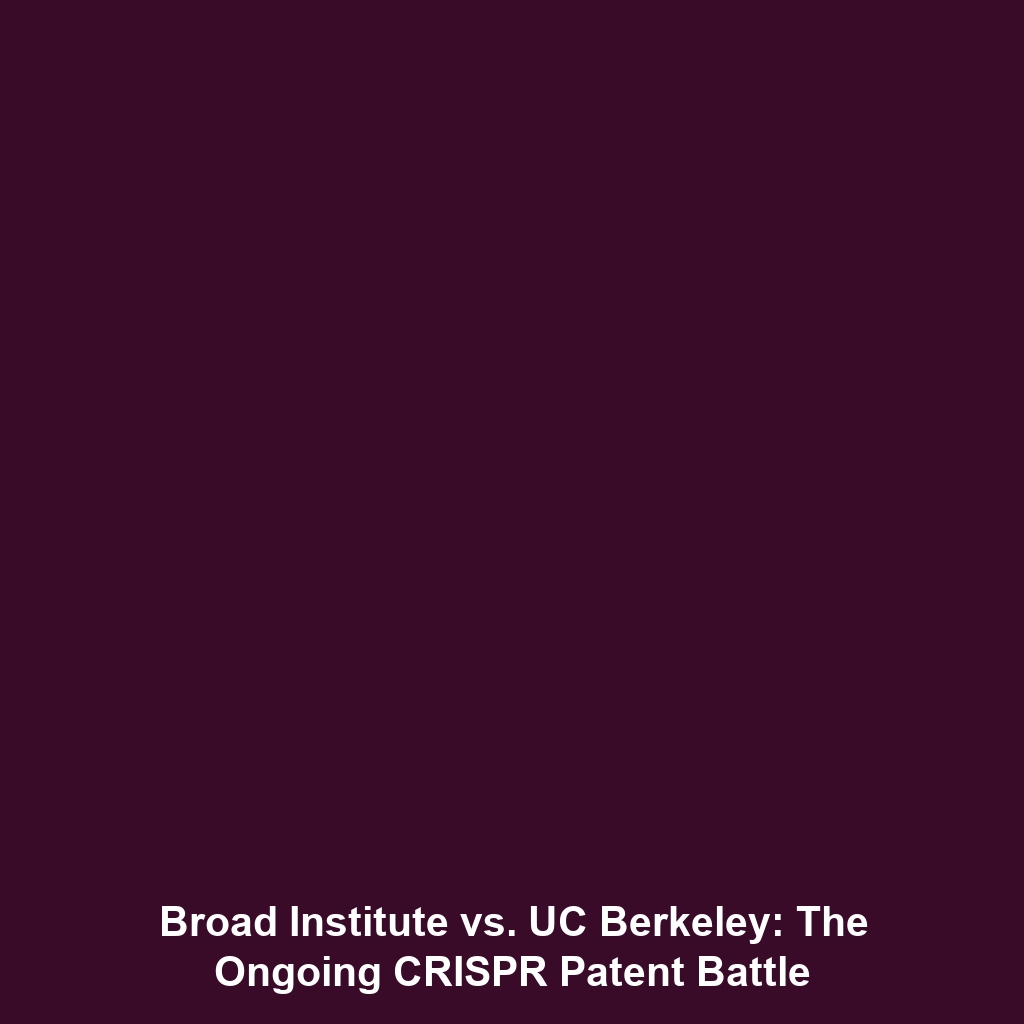The Legal Dispute Between the Broad Institute and UC Berkeley Over CRISPR Patents
The legal battle surrounding CRISPR patents between the Broad Institute and UC Berkeley has captured significant attention within the scientific community and beyond. This dispute is not just a matter of intellectual property; it holds profound implications for CRISPR gene editing technology, innovation in biotechnology, and the accessibility of genetic modifications. Understanding the complexities of this legal conflict is crucial for researchers, investors, and policy-makers as CRISPR continues to revolutionize multiple fields, including medicine, agriculture, and bioengineering.
Key Concepts
The legal dispute over CRISPR patents involves several critical concepts:
- CRISPR-Cas9 Technology: A groundbreaking tool for genome editing that allows precise modifications to DNA. This technology has accelerated research and applications across various biological disciplines.
- Patent Law: The legal framework governing intellectual property rights, which determines the ownership and distribution of new inventions, including biotechnological tools like CRISPR.
- Innovation vs. Access: The ongoing debate on how patent laws balance encouraging innovation while ensuring that scientific advancements are accessible to the broader public.
Applications and Real-World Uses
The legal dispute has significant real-world implications for CRISPR gene editing. Understanding how the patent rulings can affect the application of this technology is vital for its future:
- Gene Therapy: CRISPR gene editing is already being utilized to develop therapies for genetic disorders such as sickle cell anemia and cystic fibrosis.
- Agricultural Biotechnology: Crop improvement through CRISPR has enabled the development of resistant strains that require fewer resources and are less susceptible to pests.
- Drug Development: CRISPR technology is used to create more accurate models for testing new drugs, which could streamline the drug approval process.
Current Challenges
The challenges surrounding the legal dispute over CRISPR patents remain significant:
- Complexity of Patent Law: Navigating the intricacies of patent law can hinder research progress and innovation.
- Interference with Innovation: Ongoing legal battles can inadvertently restrict the adoption and development of CRISPR technologies.
- Global Disparities: Different patent laws in other countries may affect international collaboration and access to CRISPR technology.
Future Research and Innovations
Looking ahead, several innovations and research avenues are emerging from the legal dispute:
- Next-Generation Gene Editing Tools: Research is ongoing into more sophisticated gene editing methods that could function without being hampered by current patent disputes.
- Collaboration Models: Future studies may explore open-source models of genetic technology that facilitate innovation while ensuring access to essential biotechnologies.
- Policy Developments: Lawmakers and institutions may propose reforms to patent laws to promote both innovation and public access.
Conclusion
In summary, the legal dispute between the Broad Institute and UC Berkeley over CRISPR patents underscores key issues in CRISPR gene editing, particularly regarding innovation, accessibility, and regulatory frameworks. Moving forward, stakeholders must navigate these complexities to fully harness the potential of CRISPR technology. For more information on CRISPR innovations and ongoing research, visit our related articles on CRISPR gene editing.

Leave a Reply